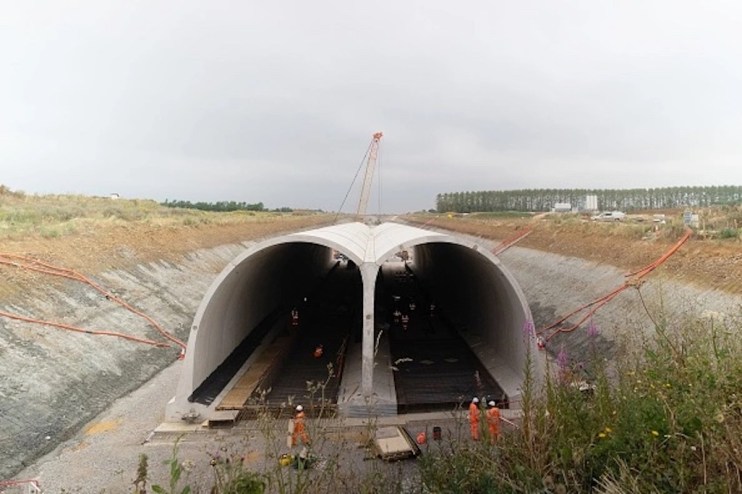Fivefold jump in freight train cancellations threatens to derail firms’ green logistics plans

A fivefold increase in the number of freight train cancellations threatens undermining a number of firms’ recent decisions to start transporting goods by rail in a bid to reduce their carbon footprints.
Freight cancellations between the financial years 2021/22 and 2022/23 rose from 2,492 to 12,708, according to data from a Freedom of Information request filed by City A.M.
The data, broken down by cause, shows that the fivefold rise was primarily driven by industrial action, which resulted in the cancellation of 9,952 trains in 2022/23 – 78 per cent of the total number of cancellations. Severe weather was responsible for 1,097 cancellations.
The impact of these cancellations was reflected in recent figures from the Office for Rail and Road.
Total freight moved – which includes products ranging from coal and oil to construction materials and food – dipped seven per cent to 15.73bn net tonne kilometres in the first quarter of this year.
The watchdog’s Freight Delivery Metric – a measure used to track freight rail performance – for the first quarter also fell to its lowest level since it began in 2013.
The figures come as an increasing number of firms look to use Britain’s rail freight network to transport goods across the country and stop relying on gas-guzzling lorries.
Last year, Nestlé announced plans to increase use of rail freight in the UK, while DP World is reported to be eyeing up a move from trucks to rail in a bid to decarbonise.
The ORR told City A.M. that Network Rail’s performance in freight had been “poor” and that improvement plans enforced by the regulator “must be delivered on now.”
John Thomas, director of policy at Rail Partners – who represent private passenger and freight operators – told City A.M. that although a resolution to the industrial dispute was welcome, “network performance challenges continue to hamper the recovery of rail freight volumes.”
Thomas argued that improving freight customers’ confidence and achieving long-term rail freight growth would be “essential if we are to maximise” its “significant economic and environmental” benefits.
A Network Rail spokesperson said: “Freight operators faced a tough year of disruption last year, largely because of the industrial dispute.
“We know how important on-time delivery is for our freight colleagues and while the dispute has ended, we are determined to continue to improve punctuality for them, and all train operators.”
The RMT declined to comment. The four major UK rail freight operators Direct Rail Services, Freightliner, DB Cargo UK and GB Railfreight did not immediately respond to request for comment.